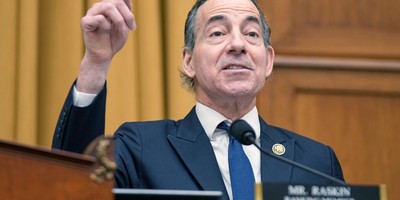Peter Parker’s wise old Uncle Ben told him that “with great power comes great responsibility.” It was a plea to the budding Spiderman — and all those who wield power — to act responsibly, since throughout all of human history, folks with power have regularly done precisely the opposite.
America’s Founders didn’t know beans about comic book characters or movies or all kinds of cool stuff we have fun with today, but they did understand the judgment of history against undiluted, unchecked power.
The ability to take a nation to war is the ultimate political power.
In the U.S. Constitution, the inhabitants of late 18th century America granted to the federal Congress, rather than the president, the awesome power “To declare War, grant Letters of Marque and Reprisal, and make Rules concerning Captures on Land and Water.” Certainly, a large portion of our revolutionary ancestors, having just battled and broken with the British monarch — and, moreover, with the very idea of monarchy — feared a chief executive allotted too much power might become a new sort of king.
Our government was not designed with the idea that we could trust those in power to behave like responsible adults. Jefferson and Sam Adams and Patrick Henry may have been the first people to say, “Been there, done that.” They sought to break up power, which is why Congress has (or had?) such an important role to play.
Today, however, Uncle Sam knows better than those silly old Founders. We’re no longer bound by their ancient republican view of history — just like we’re not bound by the laws of economics, or biology or . . . well, let’s not digress.
Recommended
In 1973, after two major wars (in Korea and Vietnam) went undeclared, waged unilaterally by a president, who committed troops and left it to Congress to take on the duty of paying the bills for the conflicts, while that same flagship institution of American democracy abandoned any policy making or executive-checking role, Congress finally struck back. Sorta. By a veto proof margin, Congress passed the War Powers Resolution.
The key point of the act reads, “The constitutional powers of the President as Commander-in-Chief to introduce United States Armed Forces into hostilities, or into situations where imminent involvement in hostilities is clearly indicated by the circumstances, are exercised only pursuant to (1) a declaration of war, (2) specific statutory authorization, or (3) a national emergency created by attack upon the United States, its territories or possessions, or its armed forces.”
The resolution also mandates that, “The President in every possible instance shall consult with Congress before introducing United States Armed Forces into hostilities . . .” and requires the president to begin pulling troops out of any such conflict, if after 60 days, Congress has not “declared war” or “enacted a specific authorization for such use of United States Armed Forces.”
Problem solved, eh? Under the War Powers Act, the president may respond to imminent threats, yet Congress can check Executive actions. But even with our Founder’s immense sense of history, they might never have imagined that the U.S. Congress would constitute such a feckless fraternity of mealy-mouthed politicians unable or unwilling to provide any such check on the president.
Consider the reality of Mr. Obama’s Libyan weekend of humanitarian bombing . . . turned into protracted bombing and war, now under new management by NATO (wink, wink). The president did not “consult” with Congress about putting U.S. troops into the military action, as he is bound to do by law (when, as in this case, time permits).
Moreover, this past Friday, the Obama Administration missed the 60-day deadline to obtain congressional authorization for the Libyan conflict. The law says that Obama must now begin withdrawing from that conflict.
But the chief law enforcement officer in the United States of America does not intend to be bound by the law — especially a law enforced by the Keystone Cops in Congress. Obama merely penned a letter to House and Senate leaders contending that he doesn’t need congressional authorization, since the U.S. role is now “limited” — especially if we pretend we’re not part of NATO, even when our soldiers are actively assisting NATO.
Of course, neither party’s leadership in Congress intends to do anything about it.
Thank goodness, last month, Senator Rand Paul (R-Ky.) stepped forward to offer a simple amendment calling on Senators to agree or disagree with this 2007 statement by then-Senator Barack Obama:
The President does not have power under the Constitution to unilaterally authorize a military attack in a situation that does not involve stopping an actual or imminent threat to the nation.
Only ten U.S. Senators voted to even consider Sen. Paul’s amendment and, thereby, to reflect on Mr. Obama’s words and, more importantly, the role of Congress in providing some check on the ability of one man or woman, the president, the commander-in-chief, to make war. The other 90 voted to look the other way, hoping not to get blamed for any disaster.
Having ignored the real-world, common-sense limitations on power prescribed by our Founders, these senators must think we have a president with the responsibility — not to mention the amazing super-powers — of a Spiderman.

























Join the conversation as a VIP Member